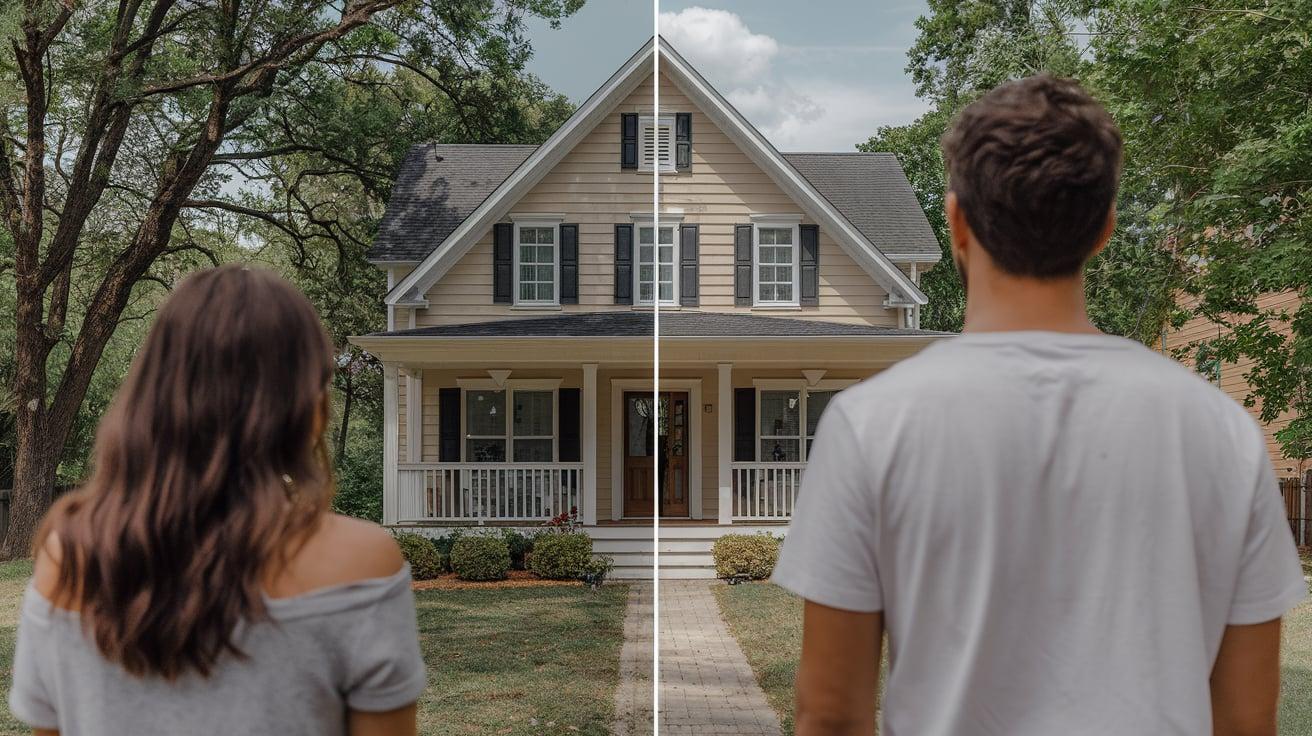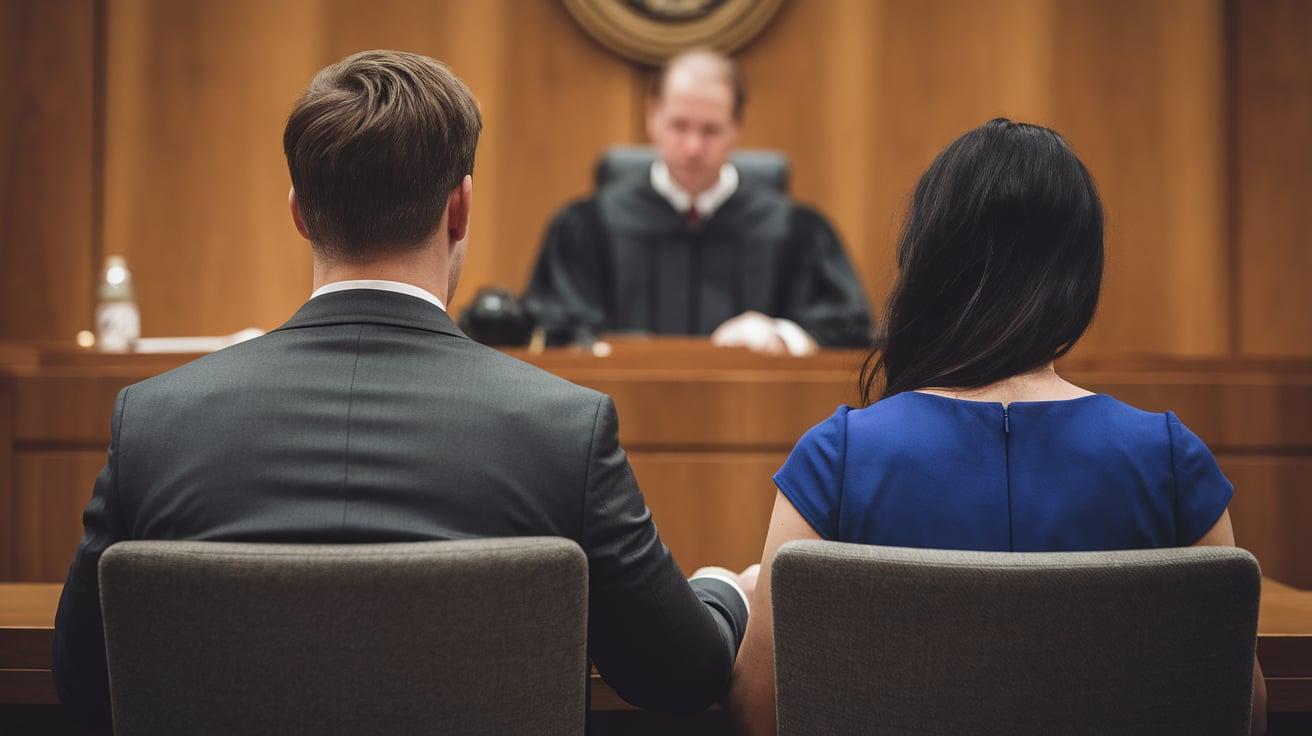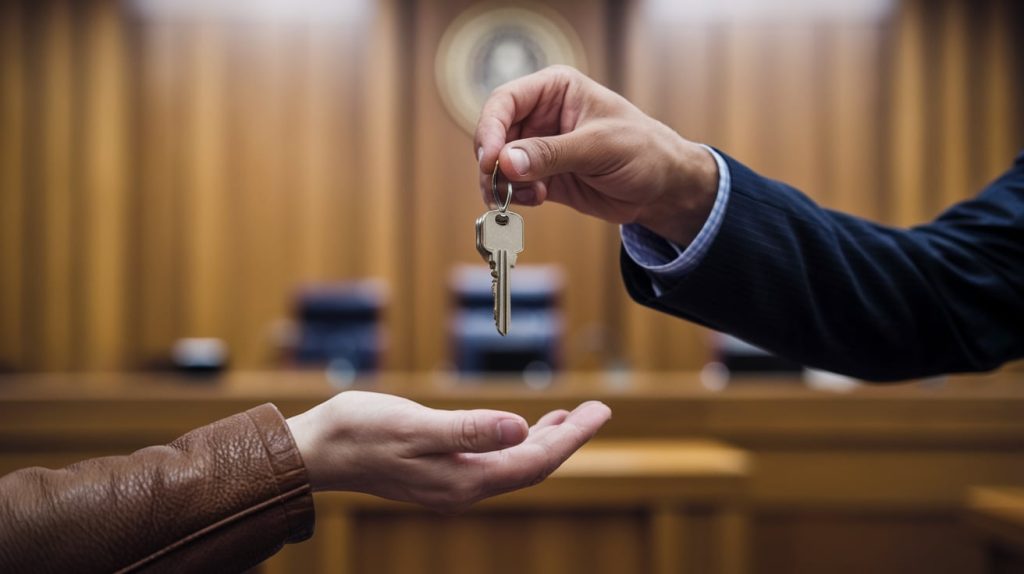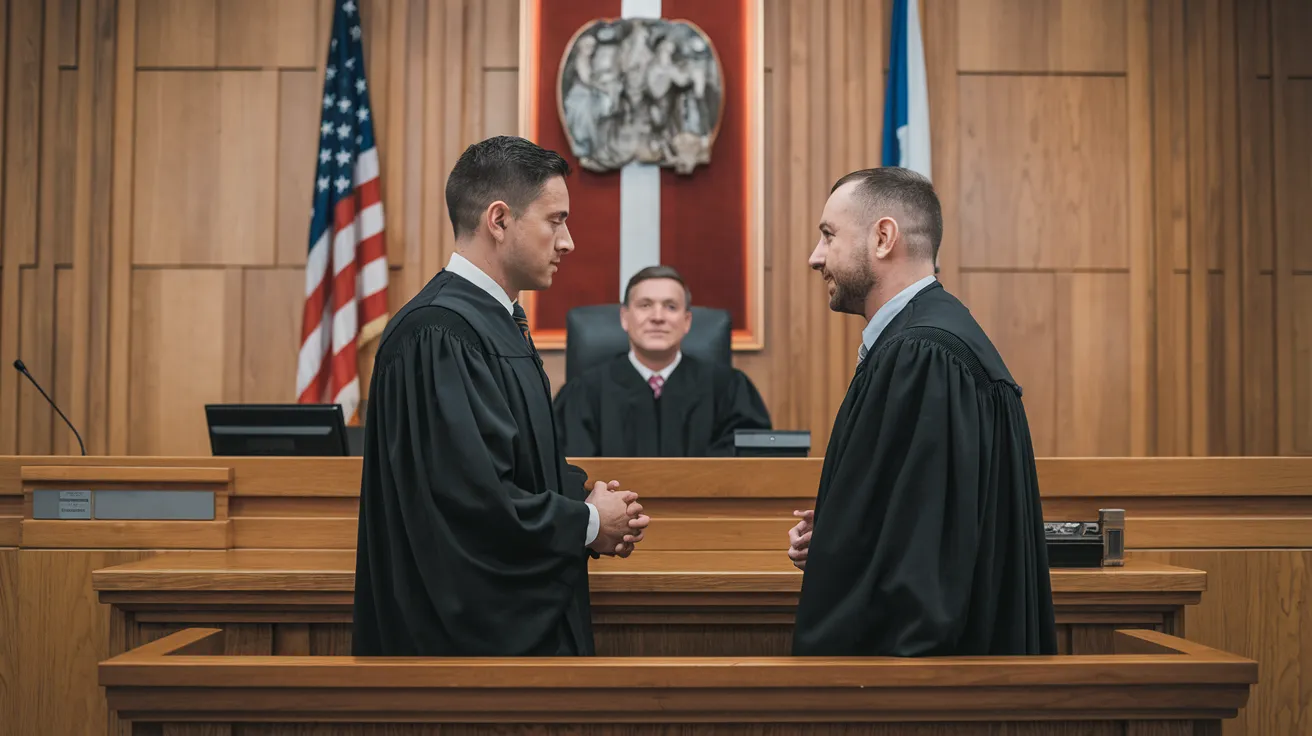Getting divorced brings up many questions about property division. In Florida, the process of splitting a home during divorce follows specific state laws.
Most couples find this part of divorce hard to deal with, as a house often represents their biggest shared asset. The court looks at many factors when deciding what happens to a home, from when it was bought to who paid for it.
Florida law treats the family home as part of the couple’s shared property in most cases.
This guide explains the legal rules that affect house division in Florida divorces.
Understanding Florida’s Property Division Laws

Florida uses equal distribution rules when splitting property in divorce cases. The law states that both partners should get a fair share of what they own together during marriage.
The courts start with the idea that everything should be split 50-50, but this can change based on several things.
When determining marital property in Florida, several factors come into play. The courts consider assets bought during the marriage as shared property, even if only one person’s name appears on them.
They also look at any value added to properties that either person owned before marriage.
Additionally, gifts exchanged between partners during marriage count as marital property, along with both persons’ income earned while married.
They consider the length of the marriage to be a key factor. Each person’s financial situation and ability to work play an important role in these choices.
The court also weighs what each person did to help obtain the property. This understanding of Florida’s property laws provides a foundation for knowing how the court might handle your house during divorce proceedings.
The rules aim to create fair outcomes while taking into account each family’s specific situation.
Different Types of Property in Florida
Florida law recognizes two main types of property when handling divorce cases.
Let’s look at each type and what they mean for your house.
| Marital Property | Non-Marital Property |
|
Homes bought after the wedding date |
Houses owned before the marriage |
|
Houses purchased using money earned during marriage |
Property given as a personal gift from someone else |
|
Value increases in a home during the marriage time |
Homes are passed down through family inheritance |
|
Money spent on home fixes or updates while married |
Real estate is kept separate through legal papers |
| Mortgage payments made with shared funds | Property listed as separate in a marriage contract |
Sometimes, the property can be part marital and part non-marital.
For example, if you owned a house before marriage but used shared money to pay the mortgage, both partners might have a claim to some of its value.
The type of property your house falls under affects how the court will handle it during your divorce. This makes it very important to know which group your home belongs to.
How the Florida Court Decides What Happens to Your House
1. Primary Court Decision Process for House Distribution
Florida courts follow established procedures to determine house ownership during divorce cases, focusing on creating fair outcomes that serve both parties’ interests.
The initial examination focuses on when the house was purchased since homes bought before marriage may give stronger ownership claims to the original purchasing spouse.
During marriage, contributions are carefully weighed by the court, including shared payments toward mortgages and any improvements made to the property by either spouse.
The courts look at all financial records to establish a clear picture of both parties’ investments in the property throughout their marriage.
2. Detailed Financial Assessment Process
Courts conduct thorough evaluations of each spouse’s ability to maintain house-related expenses, including regular mortgage payments, property taxes, and maintenance costs.
They perform a detailed analysis of both parties’ current income levels and examine all other assets they own separately or jointly.
The court carefully calculates the total financial investment each person made in the property, including initial down payments and all subsequent improvements.
Financial stability and long-term ability to maintain the property are key factors in determining the final outcome.
3. Children’s Interests and Stability Considerations
When children are part of the divorce proceedings, their needs become a central factor in the court’s decision-making process about house ownership.
Courts strongly consider allowing the parent with primary custody to retain the house to provide stability in children’s daily lives.
Maintaining children’s educational continuity by keeping them in their current school district heavily influences the court’s decisions.
The impact of housing changes on children’s social connections and routine activities is carefully evaluated.
4. Property Value and Condition Assessment
Courts require detailed information about the current physical condition of the house to make informed decisions.
They review professional appraisals to determine the present market value of the property.
All documented improvements and maintenance contributions from both parties during marriage are carefully considered.
The potential future value of the property may also factor into the court’s decision-making process.
5. Essential Practical Considerations in Court Decisions
The court examines the history of mortgage payments to understand each party’s financial commitment to the property.
They analyze potential tax consequences for both parties in scenarios of selling or maintaining ownership of the house.
Courts assess whether selling the property might provide better financial outcomes for both parties compared to maintaining single ownership.
The long-term financial implications of each possible decision are carefully weighed to ensure sustainable solutions.
How to Divide a House on Loan in Florida Divorce

Splitting a house that still has a loan needs careful handling in Florida divorce cases. The loan amount changes how much value each person might get.
This process takes several steps to make sure both parties get their fair share.
The Courts First Check These Key Money Matters
- The house’s current market price
- The amount still owed on the loan
- How much equity you’ve built up
- Monthly payment amounts
- Who can afford the payments
The math works like this:
Home Equity = Current House Value – Loan Balance
For Example
House value: $300,000
Loan balance: $200,000
Available equity: $100,000
| Your Options with a Loaned House Include | The Person Wanting to Keep the House Needs Proof They Can Pay for |
| One person refinancing to buy out the other’s share | Monthly mortgage costs |
| Selling the house to pay off the loan | Property taxes |
| Both keeping partial ownership until selling later | House insurance |
| Trading the house equity for other shared property | Regular upkeep |
Certain Disagreements About the House

Many couples face tough situations when they can’t agree on what to do with their house during divorce. These problems need careful handling to reach fair solutions.
Some Common Points of Conflict Include:
- One person wants to sell, while the other wants to keep the house
- Partners disagree about who should pay the mortgage during a divorce
- Questions about who will pay for repairs or updates
- Disputes about who gets to live in the house until the divorce ends
The court can step in when couples can’t reach an agreement. They might order the house to be sold if neither person can afford it alone.
Sometimes, they tell one person to move out while keeping both responsible for house payments. When fixing these problems, courts often ask couples to try mediation first.
A mediator helps both people talk through their issues and find a middle ground. This can save time and money compared to fighting in court.
What Happens to the Mortgage in a Divorce
A mortgage adds another layer to property division during divorce. The bank still expects payments regardless of your divorce situation.
Both names on the mortgage stay responsible for payments until changes are made.
Few Options for Handling a Mortgage During Divorce
- One person keeps the house and takes over the mortgage
- Both people sell the house and split any profit
- One person stays in the house, and both keep paying the mortgage
Taking over a mortgage requires refinancing in most cases. The person keeping the house must qualify for the new loan on their own.
This Means Having:
- Good credit scores
- Enough regular income
- Money for closing costs
- Funds to buy out the other person’s share
The court can’t remove someone’s name from a mortgage. Only the bank can do this through refinancing. Until then, both people remain legally responsible for payments.
Missing payments during divorce can hurt both persons’ credit scores. If neither person qualifies to refinance alone, selling might be the best choice.
Conclusion
Dealing with a house during a Florida divorce needs careful planning and an understanding of the state laws.
The choices you make about your home can affect your financial future for years to come.
From property division rules to mortgage matters, each step requires good choices based on your specific case. Remember that Florida courts aim to split things fairly, not just equally.
Your best move is to gather all the papers about your house, from deeds to mortgage statements, before making any big choices.
Frequently Asked Questions
Who Gets to Keep the House in a Divorce in Florida?
The court decides based on factors like who can afford the house, who has child custody, when the house was bought, and how much each person put into it. The goal is a fair division.
Does the Wife Always Get the House in a Divorce?
No. Florida law doesn’t favor either spouse. The court makes choices based on financial ability, child needs, and other fair factors, not on gender.
Are Separate Bank Accounts Marital Property in Florida?
Money earned during marriage counts as marital property in Florida, even in separate accounts. However, money owned before marriage or inherited stays separate property.









